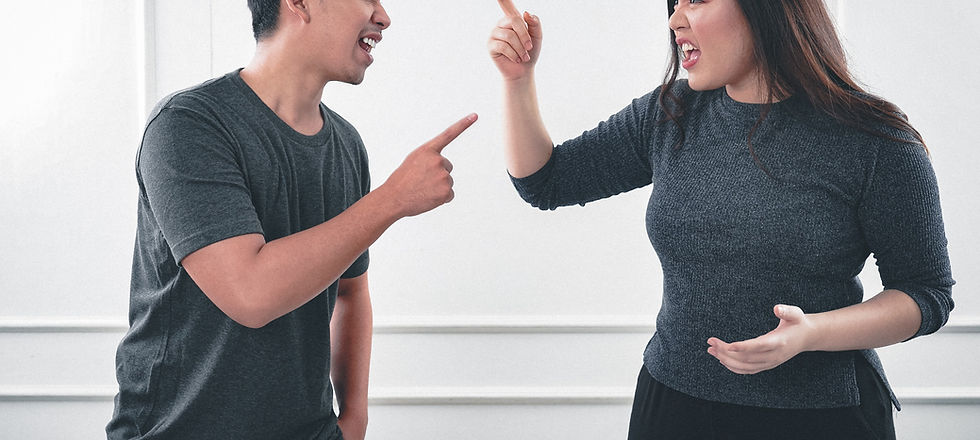Are You Addicted to Toxic Relationships?
- Azita Abdollahian

- Sep 7, 2023
- 3 min read
Addiction has been a destructive force in many of our lives. From simple, “harmless”, more accepted addictions - like coffee, or work, or sugar, to more complex, harmful, and dangerous addictions - like drugs, or alcohol; our lives have all been touched by addiction in some way.
What's important to understand about addiction is that, at its core, it’s a misguided attempt at relief. Relief from pain, physical or psychological, relief from stress, and relief from trauma.

We know that addiction isn’t only limited to “bad” things. People can become addicted to yoga, addicted to exercise, addicted to travel. Anything done to excess as a means to escape rather than enhance your reality can become an addiction.
Read that sentence again. Truly let it sink in.
The sad reality we must face is that just like drugs and alcohol, toxic relationships have a certain allure to people in vulnerable states of mind because of their ability to distract us from some of the difficult things we’re struggling with. Just as we are drawn to drugs or alcohol, we may also be drawn to dangerous, harmful, and unsustainable relationships. Perhaps out of a sense of familiarity, comfort, or maybe a false sense of security.
We know that children exposed to unstable environments can grow up to seek out chaotic relationships in adulthood. The human mind yearns for pattern, familiarity, even if that familiarity is harmful. In fact, our minds can go so far as to reject stable and safe relationships, because our trauma has rewired our minds to the point that a healthy relationship is unfamiliar and thus feels unsafe to us.

And just as addiction can be a cycle of relief and misery, so can toxic relationships. We may find ourselves repeatedly going back to them, even though they are damaging to our well-being.
They can provide a distraction, and in some ways, a relief from reality. They offer an escape. But that offer comes with a heavy price tag.
Toxic relationships can start small, but quickly escalate into very dangerous territories. They can put us, and our loved ones, at risk of abuse, trauma, even death.
So, how do you stop?
The first step in breaking the cycle of addiction is acknowledging that there is a problem. In the same way, we need to acknowledge that our relationship might be toxic and that it is having a negative impact on our lives.
This can be a difficult realisation, but it is an important one.
Next, we need to make a plan to break free from the addiction. Our addiction often becomes heavily entangled with our lives, relationships, and even identities. Untangling can be a difficult process.
For some people, this may mean seeking help from a therapist or support group. For others, it may mean cutting ties with the toxic relationship and surrounding themselves with supportive friends and family.
Just as with addiction, breaking free from a toxic relationship can be a long and difficult process. There may be setbacks and relapses along the way, but the key is to keep moving forward and to stay committed to your goal.
It's important to remember that letting go of a toxic relationship is not a sign of weakness. On the contrary, it is a sign of strength and self-love. By letting go of the relationship, we are taking care of ourselves and making room for positive, healthy relationships in our lives.
By breaking free from the cycle of addiction, we can create space for positive and healthy relationships in our lives. So, if you find yourself in a toxic relationship, remember that you have the power to change the situation and to take control of your life.
If you'd like some support during this period of your life, or you feel you may be in a toxic relationship, please reach out to your support network for help immediately. You can also contact us for a consultation directly below.
.png)



Comments